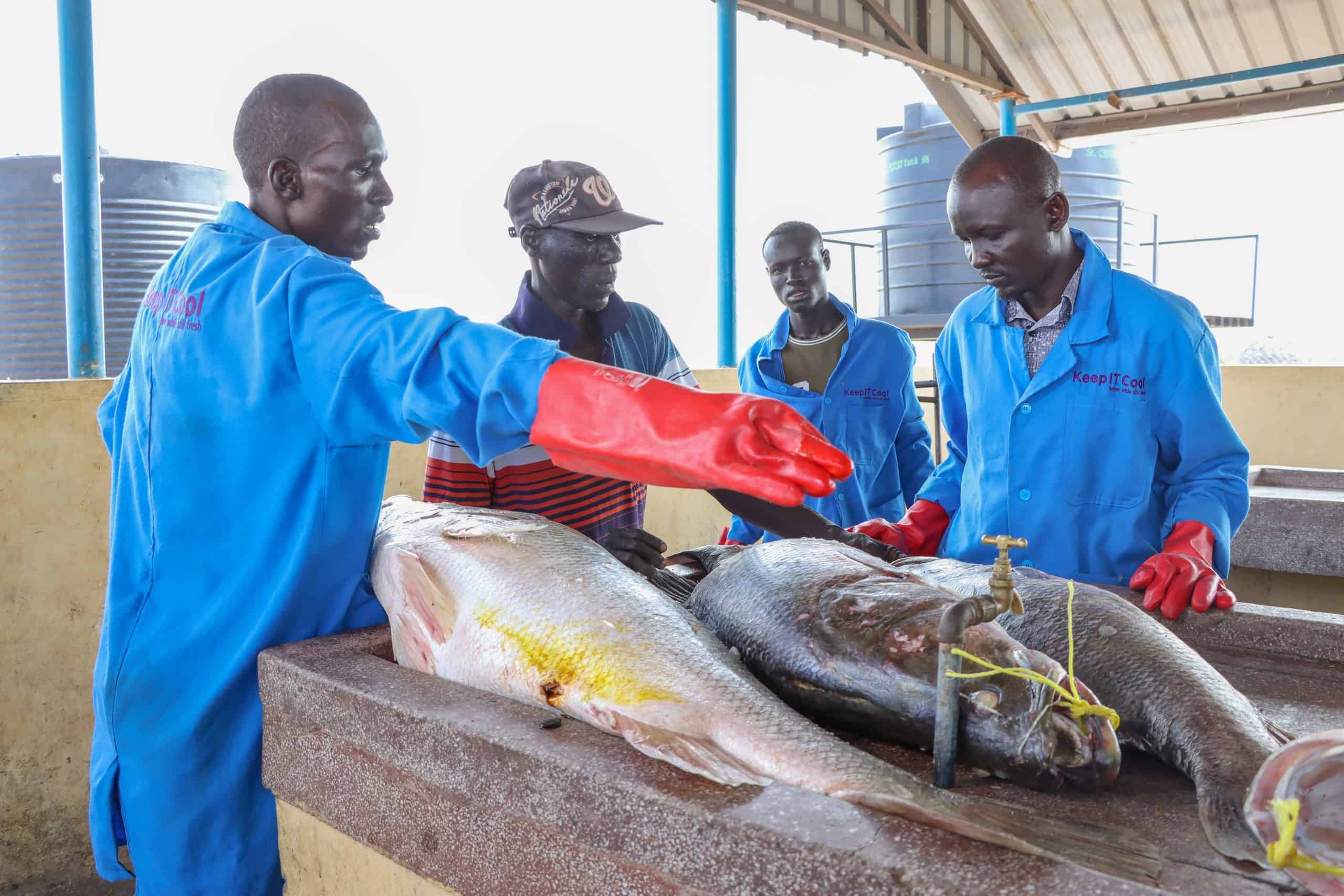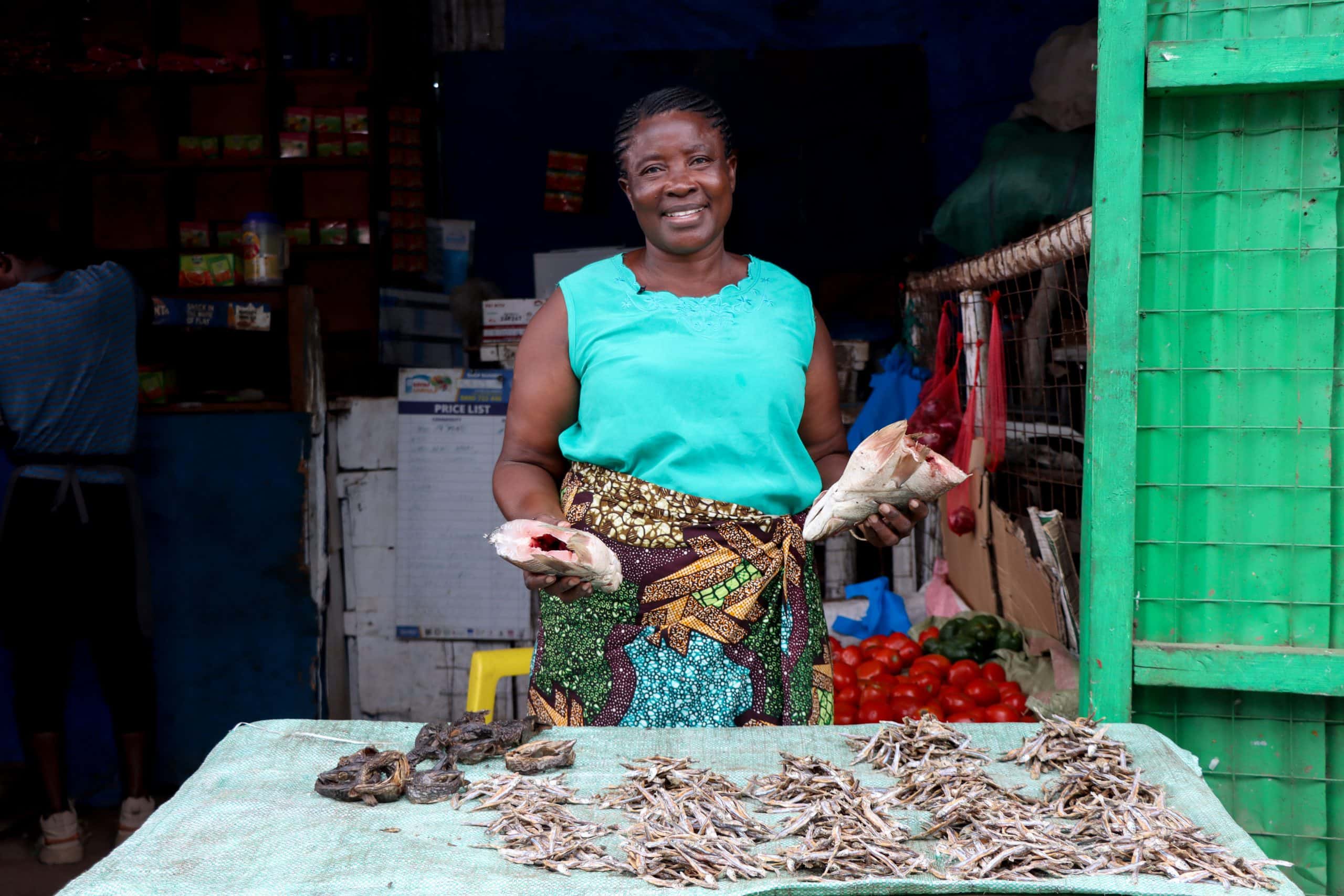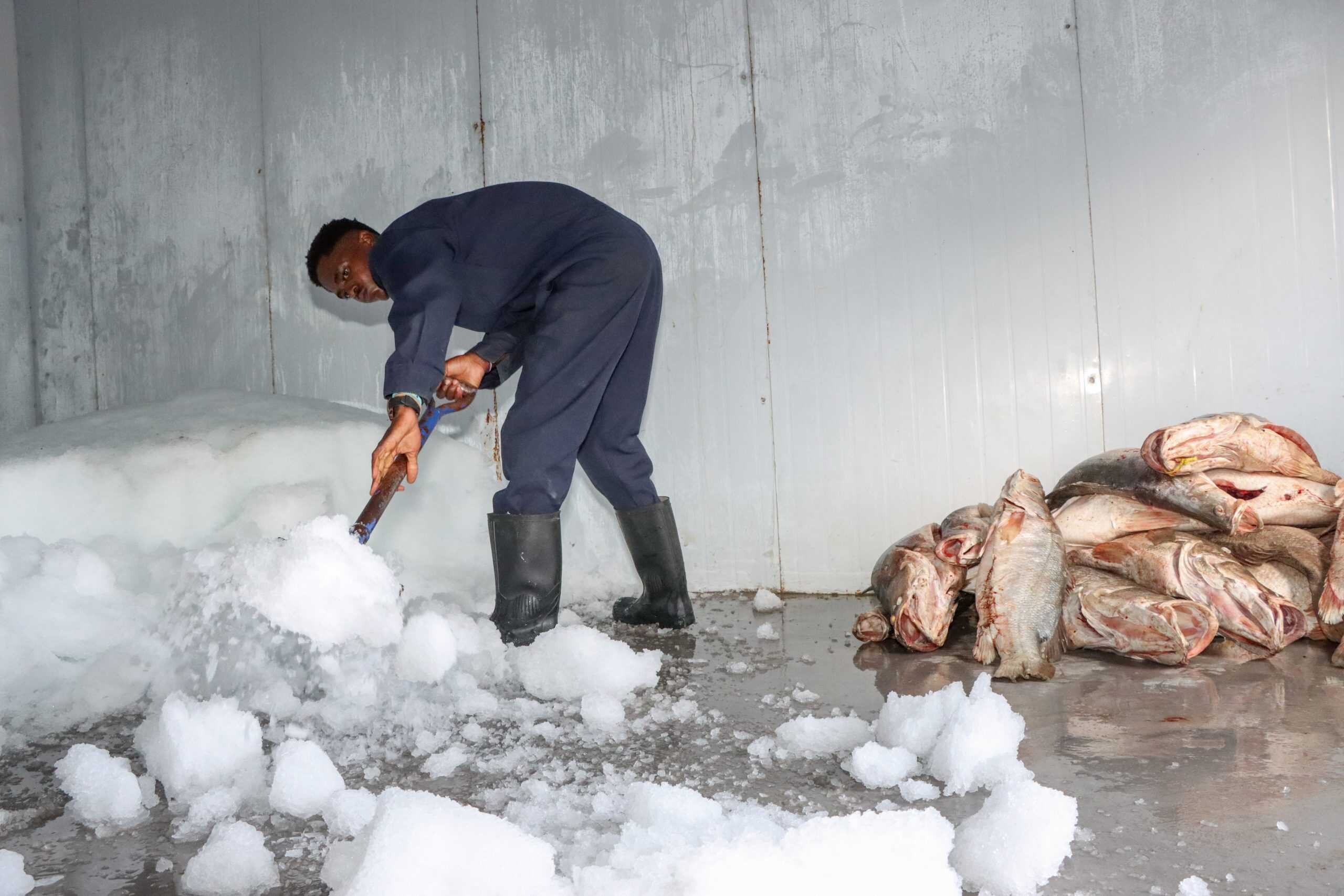Tucked deep inside the Kakuma refugee camp, Hong Kong market is a bustling commercial hub known for its vibrant economic activity. Its name reflects the entrepreneurial energy that defines the space.
It is here that Beatrice Nyembo, a 50-year-old refugee from the Democratic Republic of Congo (DRC), runs a small shop with shelves lined with general merchandise. In one corner, a weighing scale sits beside a large deep freezer, which has significantly improved how she stores and sells fish, helping her expand the business.
Beatrice arrived in Kakuma in 2011, fleeing the civil war in DRC. Struggling to earn a living beyond the food rations provided by the United Nations High Commissioner for Refugees (UNHCR), she turned to what she knew best—fish trading. Given Kakuma’s proximity to Lake Turkana, she expected a steady supply of fresh fish. However, her business faced significant hurdles, including inconsistent deliveries and spoilage due to high temperatures ranging between 30°C and 40°C.
“We would get fish from Kalokol. But if we didn’t sell it all the same day, it would spoil, leading to huge losses. Deep frying was an alternative, but the cost of fuel and cooking oil made it unsustainable,” she says.
Despite strong demand, many traders have shifted from selling fresh fish to dried fish to avoid losses. Beatrice’s business took a turn when Migingo Fish Supplies Limited entered the Kakuma market, introducing cold storage solutions that transformed the local fish trade.
Migingo Fish Supplies started as a family business in Kisumu in 2016, initially importing fish for distribution to retail outlets, schools, and hotels. However, after the Kenyan government banned fish imports in 2022, the company pivoted, sourcing fish from Lake Turkana. Recognizing the market gap in Kakuma, Migingo set up operations to stabilize supply chains and reduce losses.

George Okeyo, the company’s proprietor, says that it didn’t take long to realize the enormous opportunity for fish trade in Kakuma, prompting a change in their business strategy. “When we started importing fish from Lake Turkana, we realized the inconsistent supply of fish within Kakuma. Fish would be transported from the lake, and traders would queue to get their stock,” he says.
Previously, traders often had to pay intermediaries in advance to secure daily supplies, which discouraged many from remaining in the business. In response, Migingo set up a processing plant to provide a more reliable and consistent supply of fish.
With support from the Kakuma Kalobeyei Challenge Fund (KKCF), the company installed ice processing machines in Lodwar, procured fish-holding containers, built cold storage facilities in Kakuma and Kalobeyei, and acquired refrigerated trucks to improve distribution. This investment has created jobs and strengthened local livelihoods.
Migingo now employs 26 people, a third of whom are refugees, working in fish handling, business development, and machine operations. “We have assured the traders that they can get fish from us any time, every day of the week. This has encouraged many who had quit the trade to resume,” says Okeyo.
By combining training with better storage, the company has reduced waste dramatically—from 100 kilograms per 200-kilogram supply to as little as 5 kilograms or none at all.
KKCF has also provided business development support to both suppliers and traders. Beatrice, one of Migingo’s key distributors in the Hong Kong market, received training in areas such as business development, financial management, and cost calculation. “I now understand how to price my products by considering all costs. This knowledge has significantly improved my business,” she says, adding that the training has also helped her cultivate a culture of saving.

Beyond direct beneficiaries like Beatrice, Migingo has built strong partnerships with local Beach Management Units (BMUs) around Lake Turkana. These community-led groups promote sustainable fishing, identify landing sites for cold storage, and aggregate fish for bulk sales. Stephen “Fimbo,” chairman of Impressa BMU, says Migingo’s support has positively impacted its 328 members, including women and youth involved in boat building, fish trading, processing, and crew work.
“Before, suppliers transported fish on motorbikes, leading to significant losses. Now, we aggregate the fish and store it in Migingo’s cold storage before transporting it to the company’s plant in Lodwar, ensuring freshness and better pricing,” he says. With improved infrastructure, suppliers now sell fish at Ksh300 per kilo, up from Ksh180, significantly boosting their income.
Okeyo says that the BMUs have played a key role in mobilizing their members and raising awareness about Migingo’s efforts to support local businesses by providing a reliable market for fish, offering business development training, and creating job opportunities within the community.
Migingo Fish Supplies upholds strong gender and labor standards, prohibiting child labor and putting safeguards in place to prevent workplace harassment. As part of its expansion strategy, the company is establishing new processing plants in Lodwar and Loyangalani, Marsabit County, to tap into the region’s fish potential and serve markets in Kisumu and Mombasa.
To support this growth, Migingo has secured an additional grant from KKCF. The funding will help strengthen the company’s infrastructure and ensure that investments continue to promote sustainable economic growth in both refugee and host communities.
“Our vision is to improve fish supply chains, create jobs, and enhance economic stability in Kakuma and beyond. Addressing infrastructure challenges and improving landing sites will help us further integrate refugees and local traders into Kenya’s broader economy,” says Okeyo.
